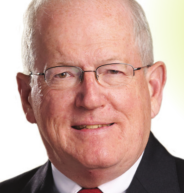First-in-the-nation snub ignores how political representation has changed in New Hampshire
Before the last New Hampshire primary, the Democratic Party, at the urging of President Joe Biden, attempted to strip our state of its traditional first-in-the-nation status, allegedly on the basis that we are too white and not diverse enough.
After that mistaken decision, we had a strong turnout, our Democrats nominated Biden on a write-in, and watched as the “diverse” state of South Carolina had a record low turnout.
In light of that, I recently attended an event in my neighborhood, in Ward 1, the north end of Manchester. When I moved to Ward 1 in 1973, it was the most reliably Republican section of Manchester, with people like Kimon Zachos as moderate representatives in Concord.
The meeting I attended in early October was to hear from those Democrats running for the New Hampshire House of Representatives from the “flotorial” district made up of Manchester Wards 1, 3 (East Side), 10, 11 and 12 (West Side). This column is not to indicate support for the candidates, but merely to comment on how things have changed. It should also be noted that the two candidates from Ward 1 alone include the present minority leader of the House, who may become speaker, and another traditional Democrat.
So, what of the candidates? First, and senior, is Mark MacKenzie, longtime legislator, labor leader and firefighter.
Next, incumbent Trini Tellez, a doctor, of Mexican descent, raised in California, graduated from Harvard and Dartmouth, and experienced in the Health and Human Services Department of the state. Hardly a traditional New Hampshire non-diverse candidate. Interestingly, Dr. Tellez’s husband is also a doctor, employed at one of the HCA hospitals in the state.
Third in the group is Suraj Budathoki, a Butanese immigrant who has built a home health care assistance business wants to give back to his community and has become a really contributing American.
Finally, Erin Kerwin, a native of Ohio, moved to New Hampshire like many not born here, and involved in the community where her children have grown up, and whose parents have moved here to join their family.
The point of all this is the candidates are not uniform, cut from the same cloth, and in fact are diverse. Looking at any other ward or town, candidates often reflect similar diversity and interesting candidates, and the Democratic Party should rethink its myopic criteria for naming the primary. Especially when it might be accused of making the decision on how Biden, now part of the past, did in the elections, no matter how high we hold him in esteem.
The other things interesting in attending the local campaign event were what those in attendance were interested in talking about. For those in Ward 1, the future of the Youth Development Center property on River Road was important. New Hampshire will get only one chance to get this one right, and a high-class development of quality residential homes and condominiums could produce high-end residential development attracting people back into Manchester who will advocate for the future of the city, while preserving the trails and recreational features of the property. Otherwise, the property could be wasted on “politically correct” uses like parks or other uses not providing taxes to the city.
The future of Catholic Medical Center also was raised, interestingly by West Side political representatives, reminding those in attendance of a public hearing on Oct. 23, when the proposed acquisition by Hospital Corporation of America will be considered by the Charitable Trust Unit of the Attorney General’s Office. It was pointed out that Manchester needs two hospitals, and the current condition of CMC apparently requires an acquisition.
Races higher up on the ballot, including governor and congress, got attention, although in this group of Democrats, there was not much debate on who they supported, although there was debate about who was ahead in the races. Of course, the race for president overshadowed the entire discussion, with the performance of the vice president and former president in everyone’s mind.
The point of all this, of course, is the treasure we enjoy in New Hampshire, of being able to get together with our neighbors, hear other neighbors who are running for office and consider them. Also, the changed nature of the candidates we attract and the makeup of our government certainly says a lot about what New Hampshire is now, as opposed to 50 years ago, when this writer first inhabited Ward 1.
Against all this, especially this year, are the reasons New Hampshire voters should have confidence that, whoever they support, their votes will be counted fairly and accurately. Our system, compared to other states, has basic components inspiring confidence.
First, every voter gets a paper ballot, which is preserved if it has to be recounted. Second, most voters have to vote on election day, unless they qualify for one of the limited reasons to cast an absentee ballot, and then, those ballots are secure. Third, we have no voter suppression, as voters can register on election day. Finally, it is our neighbors and friends who administer the process, with many checks and balances on the process.
In the face of all this, we should be confident and proud not only about our process, but about the fact that New Hampshire now reflects the diversity and progress that evidences what is best about America, no matter what some candidates say!
Brad Cook is a Manchester attorney. The views expressed in this column are his own. He can be reached at bradfordcook01@gmail.com.